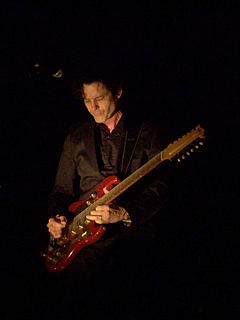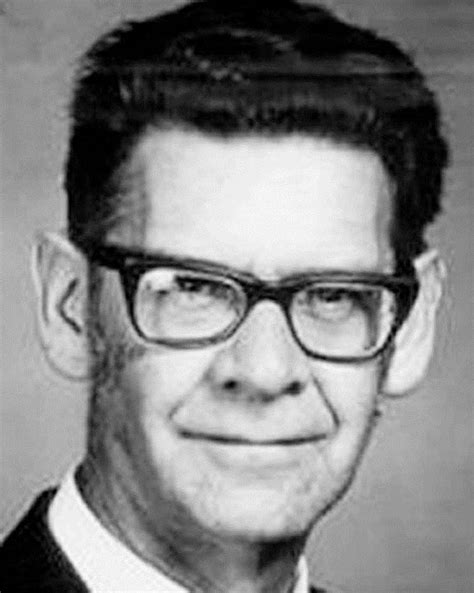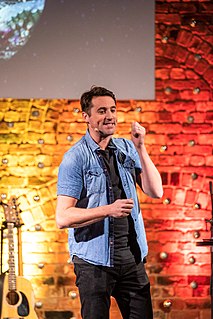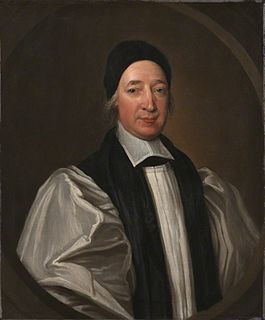A Quote by Basilea Schlink
Prayer means lovingly contemplating the Father, the Son and the Holy Spirit, allowing our hearts to be enkindled to praise and adore the love and omnipotence of the most blessed Trinity.
Related Quotes
The Holy Spirit as the Spirit of Power helpeth our infirmity in prayer. The Holy Spirit as the Spirit of Life ends our deadness in prayer. The Holy Spirit as the Spirit of Wisdom delivers us from ignorance in this holy art ofprayer. The Holy Spirit as the Spirit of Fire delivers us from coldness in prayer. The Holy Spirit as the Spirit of Might comes to our aid in our weakness as we pray.
Her [Mary's] motherhood extends beyond view. In the will of the Son, she becomes at once mother and maid: sheltering him, but sheltered in him, forming him, but formed by him ... When she pronounces the words: 'Be it done to me according to thy word', the Mother conceives the mystery from the Trinity, in order to give it to the Son. The Son gives the word back to the Trinity by giving everything he has back to the Father in the Spirit. Then, after the Father has received it again, it is distributed to mankind by means of that extravagant expansioning-the Eucharist and the Holy Spirit.
Mission [is] understood as being derived from the very nature of God. It [is] thus put in the context of the Trinity, not of ecclesiology or soteriology. The classical doctrine of the missio dei as God the Father sending the Son, and God the Father and the Son sending the Spirit [is] expanded to include yet another “movement”: Father, Son, and Holy Spirit sending the church into the world.
In spite of our sinfulness, in spite of the darkness surrounding our souls, the Grace of the Holy Spirit, conferred by baptism in the name of the Father and the Son and the Holy Spirit, still shines in our hearts with the inextinguishable light of Christ ... and when the sinner turns to the way of repentance the light smooths away every trace of the sins committed, clothing the former sinner in the garments of incorruption, spun of the Grace of the Holy Spirit. It is this acquisition of the Holy Spirit about which I have been speaking.
The Father, Who is Justice, is not without the Son or the Holy Spirit; and the Holy Spirit, Who kindles the heart of the faithful, is not without the Father and the Son; and the Son, Who is the plenitude of fruition, is not without the Father or the Holy Spirit; they are inseparable in Divine Majesty.
... the Apostle Paul says that we are sealed in the Spirit (cf. Eph. 1:13); since we have in the Son the image of the Father, and in the Spirit the seal of the Son. Let us, then, sealed by this Trinity, take more diligent heed, lest either levity of character or the deceit of any unfaithfulness unseal the pledge which we have received in our hearts.
We worship unity in trinity, and trinity in unity; neither confounding the person nor dividing the substance. There is one person of the Father, another of the Son, and another of the Holy Ghost; but the Godhead of the Father, and of the Son, and of the Holy Ghost, is all one; the glory equal, the majesty co-eternal.
Now there have been delivered to us in the Gospel three Persons and names through whom the generation or birth of believers takes place, and he who is begotten by this Trinity is equally begotten of the Father, and of the Son, and of the Holy Ghost —for thus does the Gospel speak of the Spirit, that “that which is born of Spirit is spirit,” and it is “in Christ “that Paul begets, and the Father is the “Father of all”.
This worship, given therefore to the Trinity of the Father and of the Son and of the Holy Spirit, above all accompanies and permeates the celebration of the Eucharistic liturgy. But it must fill our churches also outside the timetable of Masses. Indeed, since the Eucharistic mystery was instituted out of love, and makes Christ sacramentally present, it is worthy of thanksgiving and worship. And this worship must be prominent in all our encounters with the Blessed Sacrament, both when we visit our churches and when the sacred species are taken to the sick and administered to them
Loving a holy God is beyond our moral power. The only kind of God we can love by our sinful nature is an unholy god, an idol made by our own hands. Unless we are born of the Spirit of God, unless God sheds His holy love in our hearts, unless He stoops in His grace to change our hearts, we will not love Him... To love a holy God requires grace, grace strong enough to pierce our hardened hearts and awaken our moribund souls.





































